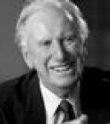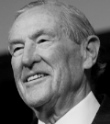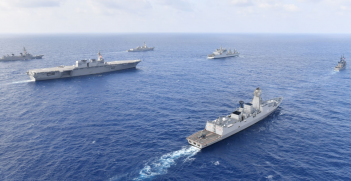Is the US a Dangerous Ally for Australia?
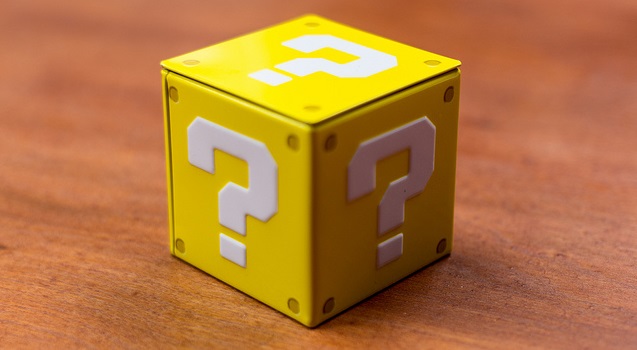
Question: Is the US a Dangerous Ally for Australia?
 Robert O’Neill FAIIA |
Yes – Malcolm Fraser has a point. Look at the mess our alliance with the US got us into in Iraq. From time to time the US will be governed by arrogant politicians and advisers who believe they have a perfect right to use force on others without having been attacked themselves. But for much of the time the US has better governments than that of George W Bush, and we can still enjoy some very necessary benefits of alliance without always building up longer-term security challenges.What are these benefits? They range from intelligence and rights of consultation through to access to powerful equipment, and in the worst case, defence in our own region with the assistance of American armed forces.Given that we have been governed for many years by ministries which have made meagre contributions to the development of our own defences, we are going to need help in the kind of turbulent world that is developing, where food and water will be in short supply, and large, hungry nations in our region are going to look with envious eyes at our resources and productive capacities.The US may sometimes be a dangerous ally, but it is at least an ally, and we are going to need a few. |
 Graeme Dobell FAIIA |
Wow – end the US alliance, close Pine Gap, see America and Japan as more of a threat to Australia than China – meet that raging radical Malcolm Fraser.The man who ranks behind only Menzies and Howard in his tenure as a Liberal PM has produced an iconoclast’s lament, a provoking and passionate attack on the orthodoxies of Australian strategy.Rate this a first in our political history – a Prime Minister arguing for an end to Australia’s addiction to great and powerful protectors.Fraser has produced a fascinating book; I argued with great swathes of it, disagreed with much of the rest. Read it – you’ll have to argue with Malcolm, even if you agree with him. |
 Garry Woodard FAIIA |
Let us not fail Fraser, and ourselves and our grandchildren, by avoiding a national debate on the message, and history, in Dangerous Allies. |
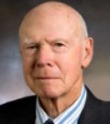 James Ingram AO FAIIA |
Malcolm Fraser has written an important book, possibly the most important ever written by a former Australian Prime Minister. As Fraser argues, our military (and political) relationship is now so close that we will inevitably be drawn into any military action in our region involving the United States no matter what our government may want. Unquestionably, the crucial challenge we face for the indefinite future is to avoid being dragged into war between the USA and China. While such a conflict is not of course inevitable the logic of the history of great power competition points to it eventually happening.We continue to delude ourselves that somehow, no matter that we continue to strengthen and expand our military links with the USA that serve its strategic purposes vis a vis China, we have not already “chosen” between the US and China. In my address three year ago to the Canberra Branch of this Institute, I explained why I believe that our security is better served by a deliberate, progressive move over time to a policy of true self-reliance and eventual de facto neutrality. Unfortunately since then military and strategic links have grown even closer, especially through the agreement to base US forces in Darwin.The Australian media and commentariat have shown at least as much, if not more interest, in why Fraser, our most pro-American Prime Minister and hawkish supporter of the Vietnam War, has undergone this conversion than in his argument. It is to Fraser’s credit, indeed a measure of his intellectual integrity and lack of vanity, that he is not interested in perpetual justification of his actions as Minister and Prime Minister but seeks to apply to today’s quite different circumstances the lessons he learned from his own experience and through a close, reflective reading of American policy since the end of the Cold War. My own conversion began when I moved from being an enthusiastic Cold War diplomat to leadership of the UN World Food Programme. As an international civil servant I soon began to see the behaviour of nation states with detachment and a clarity previously clouded by the myopia induced by daily immersion in the promotion of a received view of Australian policy. Indeed, without that detachment, it is hardly possible to be effective in the UN system. Through my ten years I had to deal with the problems created for their allies and developing countries by America’s inflexible insistence on the priority of its national interests. Disillusionment with the conduct of all US administrations since the end of the Cold War slowly persuaded me that the US is indeed a fickle and dangerous ally for Australia.Unfortunately, persuasive though it is, Fraser’s book is unlikely to change Australian policy. Our political, business, intellectual and military elites have strong vested interests in the status quo. The United States will continue to do all within its power to convince our elites that change in our military and political relationship would be mistaken. While there are signs that some among them are beginning to question whether our dependence may not be too great, the main political parties are unlikely to initiate change while public opinion is so committed to the so-called alliance. Popular opinion cannot escape from a visceral feeling that our security depends on having a great and powerful friend. Deep down Australia remains a frightened country, frightened of Asia even though our geography in reality is highly advantageous for the pursuit of an independent foreign policy. And of course Americans are very likeable people, indeed admirable in many important respects. The pervasive influence of American culture means that our sense of commonality continues to grow stronger each year. Superficial historical knowledge leaves the majority of voters ignorant that great powers always follow their own carefully calculated, often narrow, national interests. Thus ANZUS has become sacred for us, even though it does not embody a commitment to defend Australia.
Public opinion is unlikely to change unless shocked into reality by some crisis that reveals the dangerous truth of the current situation. Meanwhile, the long and difficult task of educating politicians and the public needs to gain momentum. We are in Fraser’s debt that he has had the courage to use his standing to help do this before it is too late. |
[really_simple_share]
Past Questions
April 28, 2014
Did you find Bob Carr’s ‘Diary of a Foreign Minister’ enlightening?
April 14, 2014
Is Australia’s economic diplomacy succeeding?
April 04, 2014
Is Japan Australia’s best friend in Asia?
March 24, 2014
Three years on, has enough been done on Syria?






